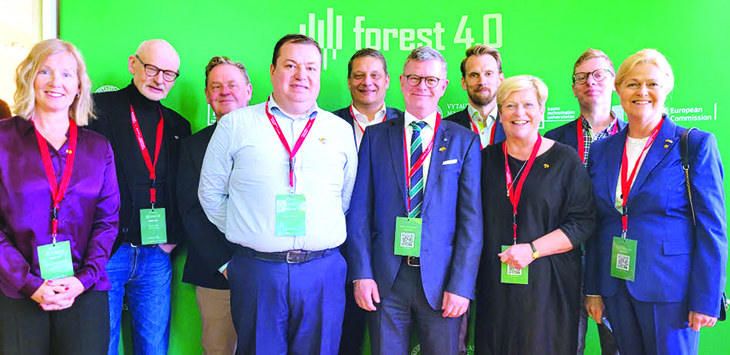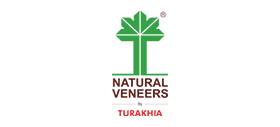Protecting forests through advanced AI

Open sharing of information about forests is of great importance to protect the climate and preserve biodiversity. Currently, Sweden-based Linnaeus University is running the Forest 4.0 initiative, an excellence centre for the application of artificial intelligence (AI) and Internet of Things (IoT) in the forestry sector in Lithuania.
The goal is to develop innovative solutions that encompass the entire process of modern forestry. The Forest 4.0 initiative aims to develop Lithuania’s forest strategy by digitalising forest management and developing an innovative bio-economy based on forests.
The project will contribute to the EU’s Green Deal and the transition to a sustainable and circular bio-economy by offering innovative applications of data collection and processing. This new long-term investment will also highlight the importance of sustainable forest management based on scientific principles.
“The use of different digital technologies, such as AI and IoT, will transform the fundamental conditions of the forestry industry. The project will become an innovation platform where data will be used as a valuable resource to create new insights and values for customers in a circular economy within the forestry sector,” says Arianit Kurti, project manager for Forest 4.0.
The total budget for the project is 20 million Euros, of which 10 million Euros come from the Lithuanian government and an additional 10 million Euros from EU Horizon.
The project is divided into seven work packages, with Linnaeus University’s budget amounting to 2.1 million Euros, with focus on the development of activities within scientific excellence and education.
Kurti also said that the ultimate goal of this initiative is to identify the needs and establish research groups working on the use of AI and IoT methods for sustainable research applications in the forestry industry.
Examples of activities could include addressing challenges related to different levels of digital maturity within the forestry sector. Another example could be enhancing digital skills and providing new research-based insights on data-driven business and service innovation.
“The collaboration within Forest 4.0 connects its ambitions with The Bridge, which is a long-term, strategic project in partnership with IKEA and Södra, focusing on forestry, innovation, and sustainability. Through digitalisation and collaboration, Forest 4.0 will develop and improve the circular value chain that starts with the living forest,” says Peter Aronsson, vice-chancellor of Linnaeus University.
In practical terms, the project aims to support forest owners in using forest resources more efficiently by utilising advanced AI and IoT technologies. This would enable increased traceability throughout the value chain to achieve a more sustainable solution. For ordinary citizens, it would mean a better utilisation of natural resources such as forests and an overall contribution to the sustainable development goals.
Comments

- ‘Red gazelle’ makes window installation easy
- Felder’s solutions for window and door production
- Versatile sliding-folding systems from Hafele
- Door line automation from Woodtech Consultants
- Accutec solutions for uPVC windows
- Jowat’s VOC-free primer for window profile wrapping
- Flexible solutions for doors, windows from SCM
- Tostem introduces Giesta steel doors; calls for dealers
- Folder system by Salice optimises cabinet space
- Turakhia has top-quality veneers for doors
- Mirka has solutions for difficult sanding of doors
- When Lamello’s Cabineo became a game changer
- Digital lacquer embossing for flooring from Hymmen
- Weber sanders help achieve luxury surfaces
- Rehau has designs on growing edge band market
- Samet ties up with Greenply to tap Indian hardware market
- IMA Schelling sets up base in India
- Hettich earns BIS nod for hinges, runners
- Biesse India now a Multi-Material Expert
- The importance of selecting the correct tools
- Indian cabinet maker shines at Lyon WorldSkills
- ‘Collaboration holds the key to success’
- Fibreboard recycling becomes a reality
- MumbaiWood now a recognised destination
- Knock on wood: A bouquet of training courses!
- Ligna 2025: ‘Thinking in circles’
- CIFF-Shanghai focuses on furniture design
- Felder hosts in-house show, Technology Days
- Interzum Forum Italy makes impressive debut
- Koelnmesse ties up for 3-in-1 Jakarta fair
- WOFX: a global hub for innovation and growth
- Events Calendar: industry fairs you must visit
- 3D is printing sustainable housing solutions
- Hard or soft? Researchers discover new wood type
- Master, apprentices take AHEC’s cherry challenge
- ‘Zero-to-launch’ modularity transforming hospitality
- ICA’s Urban Matter is about satin-finish metal effect
- MTC’s ‘Woven timbers’ create waves
- Impact of material in interior design
- Underestimated danger: Sharp edges
- Playing safe on clothing storage units
- ‘Green’, 3D-printed panel floors it!
- Adhesive-free joining of wood, metal
- Energy-efficient manufacturing of fibre-based products
- Rice bran wax: a sustainable alternative
- Dual-side hand sanding block has unique features
- Bio-based products for sustainable development
- ‘Wood Vaulting’ may enhance CO2 sequestration
- Protecting forests through advanced AI
- Forest certification benefits wildlife too!
- Elizure, the Rolls Royce of laminates!
- Rehau unveils new Rauvisio Riviera collection
- Hawa Concepta III: upgrade to seamless functional doors
- Hafele’s RE-Twist locks in on security
- Optimus machines feature tomorrow’s technology today
- Merino unveils cutting-edge offerings
- Ornare launches new premium laminates
- New nesting models from SCM
- Advanced moulder, membrane press from Woodtech
- Greenlam Laminates unveils exclusive display centre in Pune
- EUDR implementation dates may be deferred
- Herman Miller introduces bamboo upholstery
- Altendorf named ‘Brand of the Century’
- Catas to verify its test reports
- Combilift wins two prestigious awards
- Holz-Her management transition
- Replica of the Oval Office opens
- Ozone Blu sets up experience centre
- SCM opens new subsidiary in Slovenia
- VDMA faces business stagnation
- RentoMojo reports strong growth in FY24
- Century Plyboards on expansion mode
- Subhra named DG of FSC
- Meta to assist Skill India Mission
- Sugatsune opens Bengaluru experience centre
- Dieffenbacher acquires Pagnoni
- Pepperfry partners with Infra.Market
- Hafele opens light store in Chandigarh









































